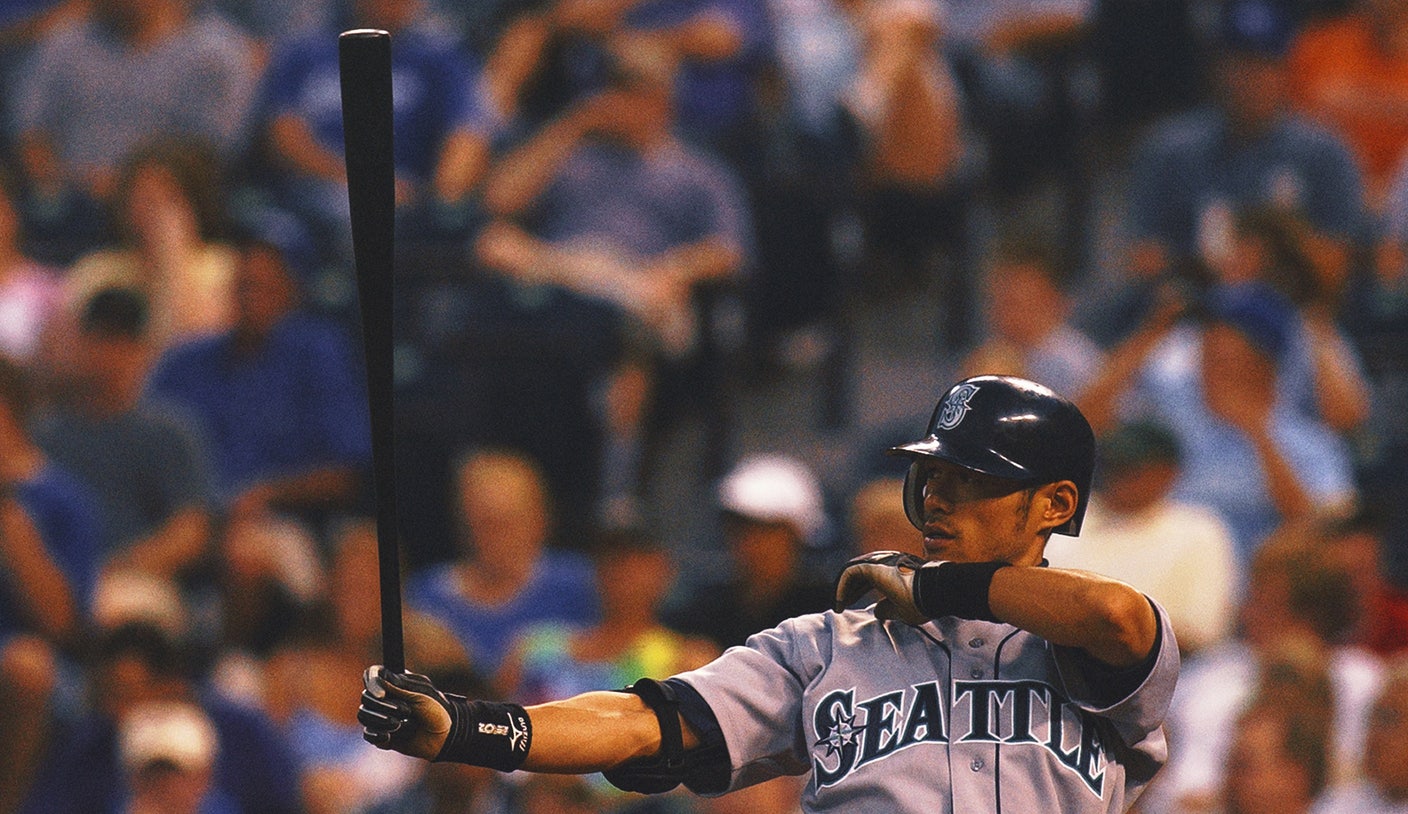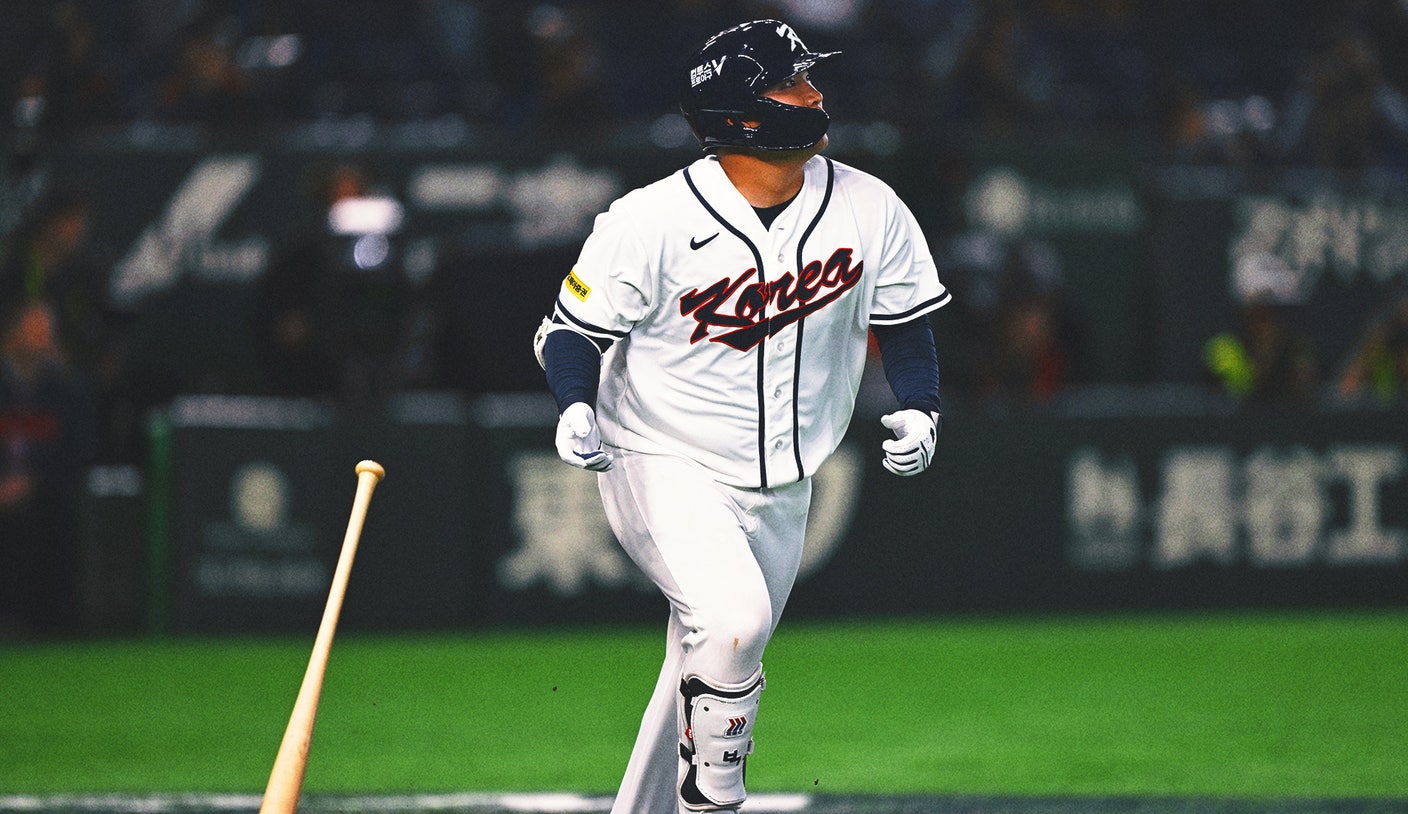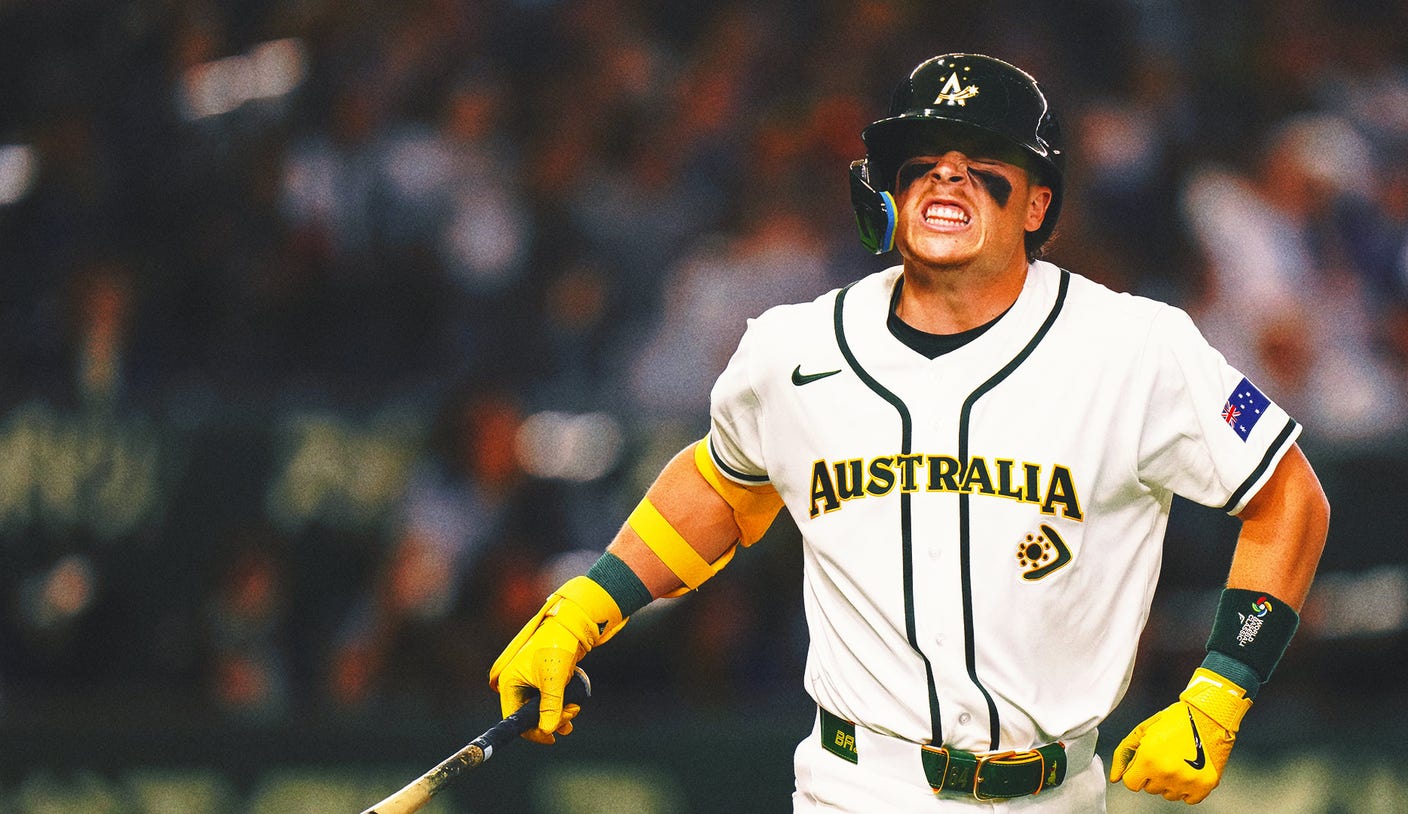Ichiro Suzuki was one of the greatest baseball players in history, and then he came to America.
He was so popular that, all the way back in 1994 in his native Japan, he began to use “Ichiro” on the back of his team jersey rather than “Suzuki.” Since Suzuki was such a common family name, his team believed it would be stellar marketing – a plan that continued when he joined the Seattle Mariners.
Consider how often “Ichiro” appears to “Suzuki” in this piece, and ask yourself if that plan worked.
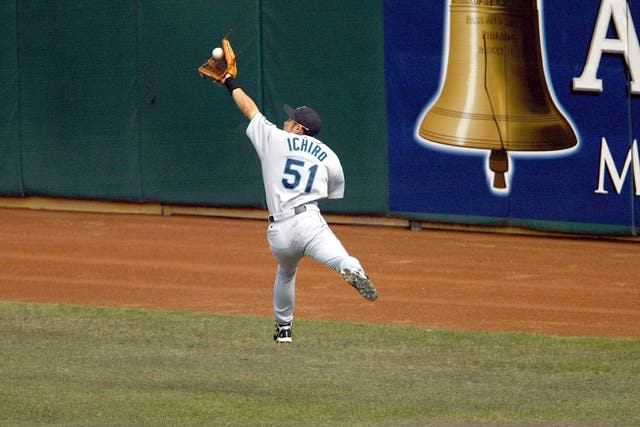
Ichiro doing Ichiro things during an amazing career with the Mariners. (Photo by Justin Sullivan/Getty Images)
For the Baseball Hall of Fame’s purposes, and likely those of the majority of its voters, the career of Ichiro began in 2001 with the Mariners when he was already 27 years old. The record books state that he had 3,089 hits, and that it took him until 2016 to record the 3,000th of his career.
In one sense, this is all true: it is when he made it to MLB, after all. But he did not arrive out of a void of nothingness. He was fully formed, a massive star in his home country of Japan who was making the trek to MLB for a new challenge. One he was more than qualified for, despite the protests and concerns of scouts, fans, and certain members of the media who weren’t sure what to make of the little guy with the weird swing. Until they saw what he and that swing could do.
From age 18 through 26, Ichiro played in Japan’s Nippon Professional Baseball league. As a teenager, he was a bench player playing sporadically — he wasn’t even drafted until the fourth round since he was 5-foot-9 and skinny. He was selected for his pitching more than his bat, despite thriving at the plate in high school. It didn’t help that Orix BlueWave manager, Shōzō Doi, disliked his swing, but he eventually relented in keeping Ichiro in the outfield — just in the minors instead. While ordered to fix Ichiro’s unorthodox swing by Doi, minor-league hitting coach Kenichiro Kawamura refused, going so far as to state that he would quit rather than change the greatest swing he’d ever seen.
With new manager Akira Ōgi at the helm of Orix, the demands to change Ichiro’s swing or turn him into a pitcher relented. Instead, after a two-year strength program under Kawamura, Ichiro would play every day for Orix in the bigs, and win his first of seven-consecutive batting titles while hitting .385/.445/.549 in a league where the average hitter put up a line of .271/.341/.411. That year, Suzuki was the first player in NPB history to record 200 hits in a season, with 211. If that doesn’t sound like many knocks, consider that the NPB season was then just 130 games long — 32 fewer than MLB’s at the same time.
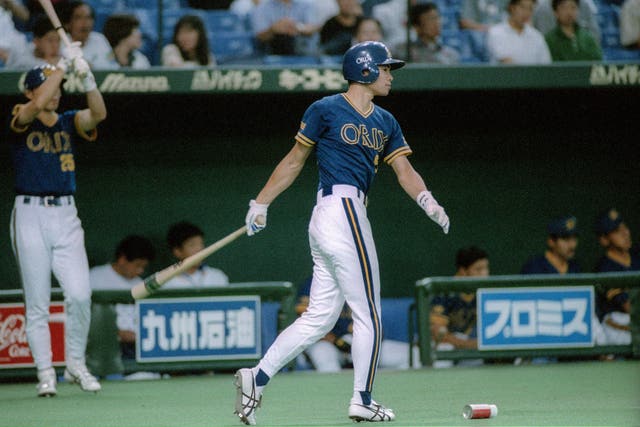
Ichiro Suzuki was already a hitting machine long before his MLB days, lighting it up in Japan’s NPB. (Photo by Richard A. Brooks / AFP)
Even with the poor showing in NPB in his teen years, Ichiro hit a combined .353/.421/.522 with 211 doubles, 23 triples and 118 homers — as well as 199 stolen bases — in his nine years with Orix. In addition to the seven-consecutive batting titles, Ichiro would win three Pacific League MVPs in a row, help end a 12-year pennant drought in his second full season in NPB in 1995, and bring the Orix BlueWave a championship in the Japan Series in 1996.
When Ichiro joined the Mariners in 2001, he won the Rookie of the Year and AL MVP awards, was named an All-Star, took home Gold Glove and Silver Slugger honors, and helped lead the Mariners to 116 wins, tied for the most ever in an MLB season. He led the majors with 242 hits and 56 steals, won the AL batting title while hitting .350/.381/.457, and had eight outfield assists; Ichiro probably would have had more than that if it wasn’t so obviously a bad idea to run on his cannon of an arm. He did have potential as a pitcher, after all.
Ichiro would log at least 200 hits in 10-straight seasons for the Mariners — a record — while leading the majors seven times in that stat in the process. The high point was in 2004, when he logged an MLB-record 262 hits in a season, breaking George Sisler’s 84-year-old record by five. It was also the best season of Ichiro’s career, as he produced 9.2 wins above replacement thanks to batting .372 in what also turned out to be his greatest defensive season.
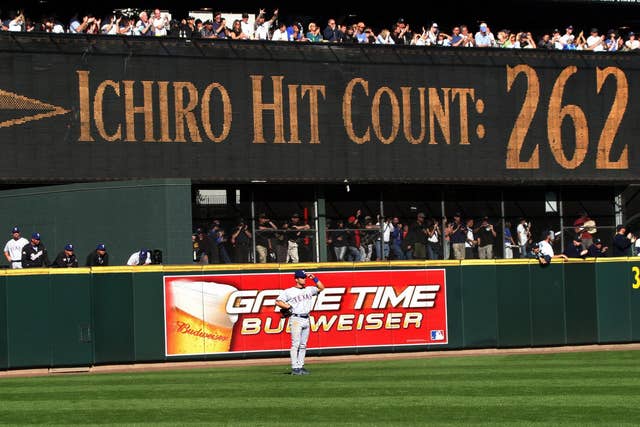
No one had ever reached 260 hits in a season before, and then Ichiro collected 262 of them. (Photo credit DAN LEVINE/AFP via Getty Images)
While 2010 would mark the final time that Ichiro collected over 200 hits in a season, he was also 36 at that point. He was never quite the same player after that point, but very rarely is anyone. From his first full season in NPB at age 20 until his 37th birthday, Ichiro was without peer. Following that seven-year run of .353/.421/.522 with Orix, his 2001 through 2010 with the Mariners produced a .331/.376/.430 line with 90 more homers, 258 doubles, 71 triples, another 383 stolen bases and a decade of brilliant defensive work in right field, and 2,244 of his eventual 3,000-plus MLB hits.
At that point, the 37-year-old Ichiro already had over 3,000 career hits in major leagues. Over 3,500 of them, in fact. It would take another six seasons for 3,000 hits to be celebrated, however, since the MLB-focused work was looking at just that, but he was already over 4,000 by then. When Ichiro’s career finally did come to an end, it featured 4,367 hits — 927 of them for extra bases — as well as 708 steals and a career line of .322/.373/.434. And this in spite of struggles both at the beginning and end of his career, spanning multiple years.
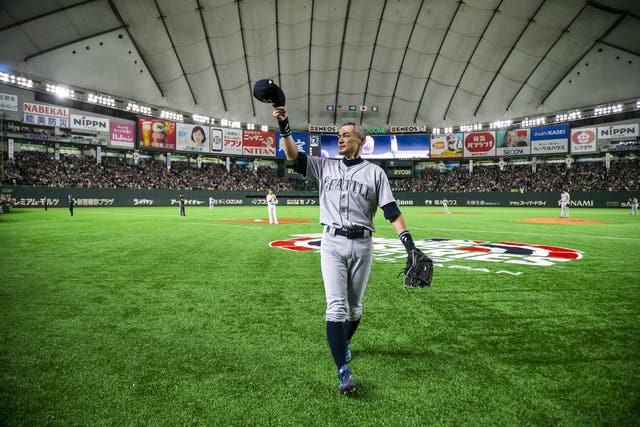
Ichiro Suzuki’s major league career, in both MLB and NPB, spanned an incredible 28 years. (Photo by Ben VanHouten/Seattle Mariners/Getty Images)
The Baseball Hall of Fame and its voters might not necessarily be celebrating both of these parts of his career as one, but they could have. The Japanese Baseball Hall of Fame certainly is: despite spending nine seasons in NPB, just seven of them full ones, he was elected to those halls in 2025 in his first year of eligibility, as well. Breaking down those walls a little, recognizing that Ichiro would have been an all-time great regardless of where he played, is nothing but an ode to the man who knocked down plenty of those walls himself in his 28 years in major leagues. He was one of baseball’s most accomplished and best players, and then Ichiro showed up in Seattle, and did it all over again.
Want great stories delivered right to your inbox? Create or log in to your FOX Sports account, and follow leagues, teams and players to receive a personalized newsletter daily!
recommended

Get more from the Major League Baseball Follow your favorites to get information about games, news and more

